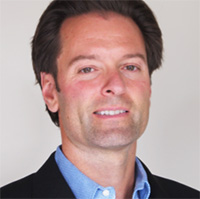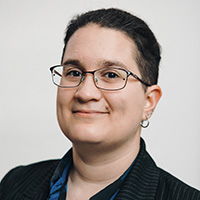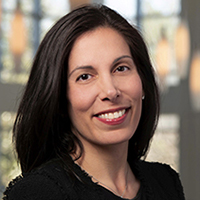Cutting Edge Neuroscience, Cutting Edge NeuroethicsMEETING VENUESan Diego Central Library The 2018 Annual Meeting of the International Neuroethics Society will gather a diverse group of scholars, scientists, clinicians, and professionals dedicated to the responsible use of advances in brain science. Join old friends and new colleagues for an intellectually stimulating and dynamic conference that explores technologies challenging and advancing our understanding of the brain.
Schedule is subject to change.
Thursday, November 1
9:45–10:30 AMRegistration / Networking / Coffee
10:30–10:40 AMWelcome
 Opening LECTURE (10:40–11:00 AM)Tom InselMindstrong Health
Opening PANEL (11:00 AM–12:30 PM)Digitally Decoding Brain & BehaviorIn the past decade, the development of devices that collect information passively has given behavioral scientists a new window into human behavior. Smartphones, assistants (e.g. Google Home and Amazon Echo), wearables and environmental sensors have an unprecedented reach. They are becoming increasingly common and can collect data continually and passively. These devices can have benefits such as offering digital phenotyping for early signals of depression, psychosis, or seizures. However, the power of this approach has also raised questions about transparency, agency, and responsible use. This panel will explore the potential unintended consequences with this exciting new opportunity.
12:30–1:30 PMLunch
 RISING STAR PLENARY LECTURE (1:30–2:15 PM)Emily PostanUniversity of Edinburgh
PANEL (2:15–3:45 PM)DBS: Continuity of Self?There is disagreement about whether deep brain stimulation (DBS) causes personality changes, and if so whether such changes generate any cause for concern. To unpack this disagreement, we must clarify what we mean by ‘personality changes’, how they would be measured clinically, and which instances of personality change (if any) require attention. Questions regarding prevalence and severity of personality changes following DBS should be raised against this background. The answers may inform regulation of DBS interventions, or procedures safeguarding informed consent. This panel will facilitate discussion to clarify concepts and uncover where there is genuine disagreement regarding facts and values.
BREAK (3:45–4:15 PM)
4:15–5:15 PMPoster Presentations / JudgingAuthors of even-numbered poster presentations will speak at assigned times.
Public Program (5:30–7:00 PM)My Brain Made Me Buy It? The Neuroethics of AdvertisingThe consumer neuroscience industry is entering its second decade and continuing to grow thanks to increased acceptance by advertisers looking to better understand consumers' preferences and decision making. However, more questions and concerns are being raised as advertising techniques challenge social and ethical boundaries. Dr. Carl Marci, Chief Neuroscientist at Nielsen, will address the ethical concerns related to consumer neuroscience including issues around privacy, informed consent, and consumer autonomy in decision making. A discussion will follow.

Dr. Carl Marci
Developed in partnership with The Center for Ethics in Science and Technology. This session is free and open to the public. Due to overwhelming demand, registration has been close. Those who register and will be participating the full INS meeting will be able to attend.
Public Registration
7:00–8:00 PMReception
8:30 PMAffinity Group Dinners
Friday, November 2
8:00–9:00 AMBreakfast / Business Meeting
9:00–9:15 AMWelcome
PANEL (9:15–10:45 AM)Genetics, Behavior, and SocietyGenetic research has long raised social and ethical issues that have been discussed across the social and clinical sciences. These issues are currently highlighted in the study of “sociogenomics,” the genetic study of social behaviors and social categories such as educational attainment, measured IQ, reproductive behavior risk-taking. By linking brain and behavior to genetics, these studies raise important neuroethical questions about the relationship between genetics, behavior, and society. Panelists in this session will describe recent discoveries in sociogenomics, discuss the implications of such findings for policy and social action, and contextualize the field of sociogenomics within the broader history of genomics and society, including eugenics.
 Interview with Ariel Cascio: What Neuroethics Can Offer the Genetics of Social Behavior
BREAK (10:45–11:00 AM)
11:00 AM–12:00 PMPoster Presentations / JudgingAuthors of odd-numbered poster presentations will speak at assigned times.
12:00–2:00 PMLunch
PANEL (2:00–3:30 PM)Brain Surrogates: Perceptions and RealityVarious models are now being developed with human brain tissue that have the potential to provide a much more accurate representation of normal and abnormal brain function and development. These brain surrogates offer researchers a way to investigate how the living human brain works and provide much promise for alleviating the suffering of neurological and psychiatric disorders. Yet there are difficult questions that will be raised as models of the human brain get closer to replicating its functions. This panel will discuss the types of models being developed, the difficult questions raised as advances continue, and the ethical tools needed.
 Interview with Nita Farahany: Integrating Neuroethics and the Law will be Invaluable as Brain Surrogates Develop 3:30 - 4:30 PMOral Abstract PresentationsAuthors will give a quick 5 to 7 minute oral presentation on the abstract and research.
BREAK (4:30–5:00 PM)
 FRED KAVLI DISTINGUISHED NEUROETHICS LECTURE (5:00–6:00 PM)Keith HumphreysStanford University
6:00–7:30 PMAwards Presentation and Reception
|
